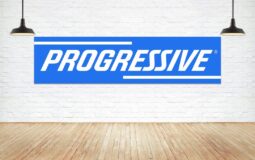As a business owner, safeguarding your enterprise against potential risks is crucial for its long-term success and sustainability. While general business insurance policies provide essential coverage, many industries face unique risks and challenges that require specialized insurance solutions. Industry-specific insurance policies are tailored to address the specific needs and exposures of businesses within particular sectors. In this article, we’ll explore the concept of industry-specific insurance policies and discuss some common types of specialized coverage tailored to specific industries.
Understanding Industry-Specific Insurance Policies:
Industry-specific insurance policies, also known as niche or specialized insurance, are designed to meet the unique needs and challenges faced by businesses within specific sectors. These policies go beyond the coverage offered by standard business insurance policies and provide tailored protection against industry-specific risks and liabilities. By addressing the specific needs of businesses within a particular industry, these policies help mitigate risks effectively and ensure comprehensive protection for businesses and their assets.
Common Types of Industry-Specific Insurance Policies:
- Professional Liability Insurance:
Professional liability insurance, also known as errors and omissions (E&O) insurance, is essential for professionals and service-based businesses that provide advice, expertise, or specialized services to clients. This coverage protects against claims of negligence, errors, or omissions in the performance of professional duties, such as providing inaccurate advice, failing to deliver promised results, or breaching professional standards. Industries that commonly require professional liability insurance include:
- Legal services
- Accounting and financial services
- Consulting and advisory firms
- Healthcare and medical professionals
- Information technology (IT) and software development
- Contractor’s Liability Insurance:
Contractor’s liability insurance is tailored for businesses in the construction industry, including general contractors, subcontractors, and construction trades. This coverage provides protection against risks associated with construction projects, such as property damage, bodily injury, and third-party liability claims. Contractor’s liability insurance may include coverage for construction defects, faulty workmanship, and completed operations. Industries that commonly require contractor’s liability insurance include:
- General contractors
- Specialty contractors (e.g., plumbers, electricians, roofers)
- Construction managers
- Building owners and developers
- Cyber Liability Insurance:
Cyber liability insurance is designed to protect businesses against the financial and reputational consequences of data breaches, cyber-attacks, and other cyber threats. This coverage helps businesses mitigate the costs associated with data breaches, including forensic investigations, data recovery, notification expenses, legal fees, and regulatory fines. Industries that commonly require cyber liability insurance include:
- Healthcare providers and medical practices
- Financial institutions and banks
- Technology companies and software developers
- Retailers and e-commerce businesses
- Professional services firms (e.g., law firms, accounting firms)
- Directors and Officers (D&O) Insurance:
Directors and officers (D&O) insurance provides coverage for the personal assets of company directors and officers in the event of claims alleging wrongful acts, errors, or omissions in their professional capacities. This coverage protects directors and officers from personal liability for decisions made on behalf of the company and helps attract and retain top talent to serve on boards of directors. Industries that commonly require D&O insurance include:
- Publicly traded companies
- Private companies with external investors
- Nonprofit organizations and charitable foundations
- Startups and emerging growth companies
- Financial institutions and banks
- Product Liability Insurance:
Product liability insurance is essential for businesses that manufacture, distribute, or sell products to consumers. This coverage protects businesses against claims of injury or property damage caused by defective or unsafe products. Product liability insurance helps cover legal fees, settlements, and damages resulting from product-related incidents, ensuring financial protection and peace of mind for businesses. Industries that commonly require product liability insurance include:
- Manufacturers of consumer goods
- Pharmaceuticals and medical device manufacturers
- Food and beverage producers
- Automotive manufacturers and suppliers
- Toys and children’s product manufacturers
Conclusion:
Industry-specific insurance policies play a crucial role in providing tailored protection for businesses within specific sectors. By addressing the unique risks and challenges faced by businesses in different industries, these policies help mitigate risks effectively and ensure comprehensive protection for businesses and their assets. Whether you’re a healthcare provider, construction contractor, technology company, or manufacturer, there are specialized insurance solutions available to meet your unique needs and exposures. Consulting with an experienced insurance advisor can help you identify the right industry-specific insurance policies for your business and ensure that you have adequate protection in place to mitigate risks effectively. With the right insurance coverage in place, you can have peace of mind knowing that your business is protected against potential threats and uncertainties specific to your industry.










